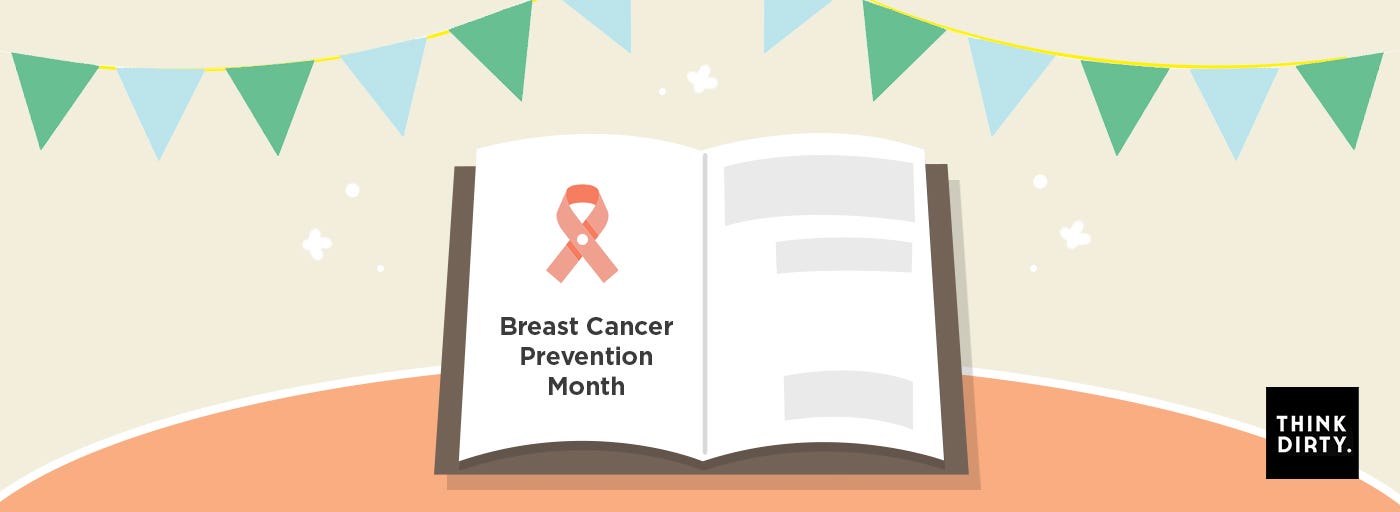Let’s Talk About Breast Cancer Month

Welcome to October, the internationally recognized Breast Cancer Awareness Month — aka Pink Washing Month. Since there continues to be a flood of ribbon products on display, it’s the perfect time to revisit the true history of Breast Cancer Awareness Month.
In 1985, the American Cancer Society partnered with Imperial Chemical Industries to create the first Breast Cancer Month. Imperial Chemical Industries, now part of AstraZeneca (one of the largest global pharmaceutical companies), is known for their breast cancer drugs. AstraZeneca’s initial motivation for the creation of the Month and promotion of breast cancer screening programs was financial. The company realized that it would be more cost-effective to conduct breast cancer screenings rather than incur the much higher costs if the cancer were discovered at a later stage. This, combined with the fact that pharmaceutical companies like AstraZeneca directly profit from increased cases of cancer, has been met with criticism. The aim of the Month was, and still is, a little vague. Their stated goal (on a now-defunct website) was to promote awareness of “breast cancer issues”. They also emphasized the importance of screening and annual mammograms.
Breast Cancer Awareness Month has now been largely co-opted by corporations looking to capitalize on the movement. Some people, including the Think Dirty team, find the commercialization problematic. It’s critical to promote education about the issue and encourage women to get screened. The cause and associated pink ribbon, however, have become a lucrative ploy for corporate marketing to profit off of patients’ and survivors’ struggle. While $6 billion is committed to breast cancer research each year, there is no transparency regarding how much the corporations profit in comparison. In addition to exploiting the cause for financial gains, it’s also a common theme to sexualize and objectify patients’ bodies in the name of charity.
Cancer prevention is the very reason our founder, Lily Tse, created the Think Dirty mobile app. The app raises awareness about our daily exposure to harmful and carcinogenic chemicals through commonly used products. By decoding product labels, we empower consumers to make healthier choices regarding what they put on their body. Whether it is in regard to the food you put in your body or personal care products you put ON your body the conversation about this deadly disease should be about prevention.
Many breast cancer nonprofits and charities are doing critical work to reduce the prevalence of breast cancer. The important questions are, who are the sponsors and how much of the proceeds are actually making their way to the cause. Before you pay for another pink ribbon lipstick here are 4 questions you want to ask:
1. Does any money from this purchase go to support breast cancer programs? How much?
2. What organization will get the money? What will they do with the funds, and how do these programs turn the tide of the breast cancer epidemic?
3. Is there a “cap” on the amount the company will donate? Has this maximum donation already been met? Can you tell?
4. Does this purchase put you or someone you love at risk for exposure to toxins linked to breast cancer? What is the company doing to ensure that its products are not contributing to the breast cancer epidemic?
Having a month devoted to raising awareness and funding for Breast Cancer is a positive initiative. It’s up to us consumers and do-gooders to do important research before blindly supporting a cause without holding these organizations accountable. Here is a list of breast cancer charities that focus on prevention:
Breast Cancer Prevention Partners
Breast Cancer Action
You can count our app as one of your trusted resources for researching ingredients and making safer choices.

